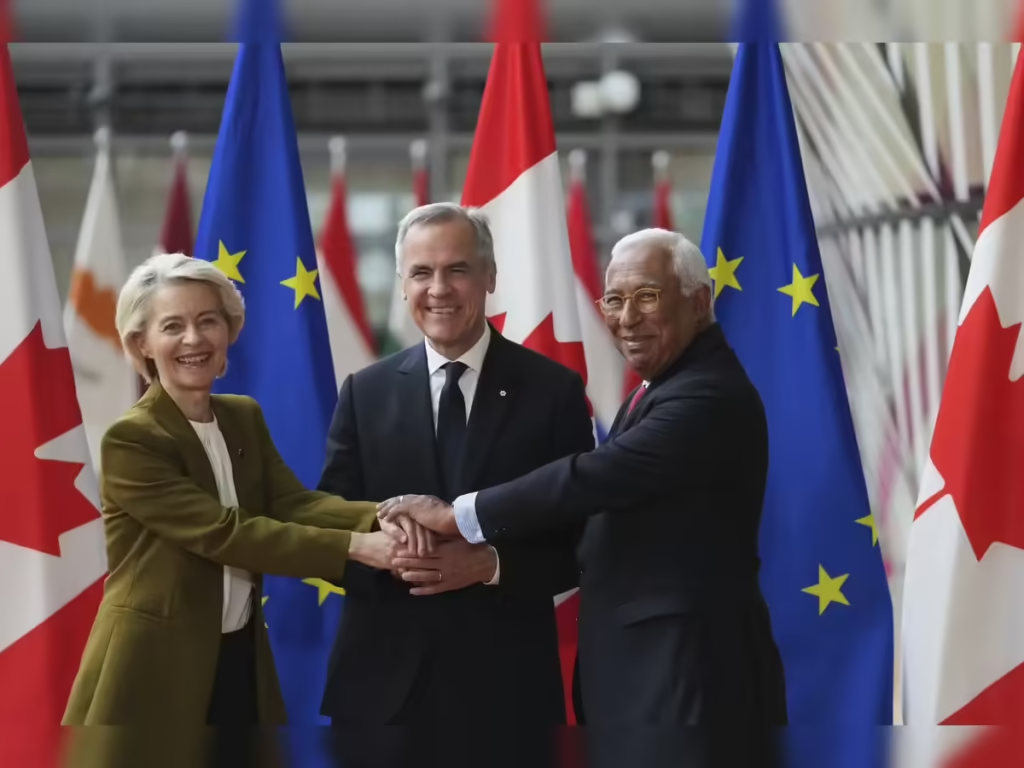
In a daring course of action to reinforce transatlantic solidarity, Canada and the European Union entered into an extensive security and defence cooperation agreement on Tuesday that heralds a new era of joint strategic partnership between Ottawa and Brussels.
The agreement, revealed as part of a high-level summit in Brussels, will support improved intelligence sharing, improved military training, and joint cyber resilience and crisis response efforts. The agreement comes at a time of ever-increasing global uncertainty, growing authoritarian threats, cyber attacks, and geopolitical instability which have pressured Western partners to become closer together.
“Canada and the European Union are natural partners for the defence of democratic values, global stability, and for international law,” Justin Trudeau, Prime Minister of Canada, said in a statement, after signing the accord with the President of the European Commission, Ursula von der Leyen.
“This agreement secures our joint commitment to peace and security through real and practical cooperation on the ground, in the air, and online.
This was echoed by the EU, calling it a “strategic milestone,” and signalling a broader ambition for Europe to take greater control of its defence capabilities while establishing ties with long-term allies, like Canada.
The treaty specifies a number of priority areas for joint action:
- Cyber Security and Hybrid Threats: Joint activities to detect, deter and counter cyberattacks and disinformation campaigns, including Canada joining some EU initiatives like the Cyber Rapid Response Team.
- Military Mobility and Training: Easier cross-border movement of troops and military equipment, and Canadian involvement in EU military training and exercise.
- Defence Industry Cooperation: Greater coordination of defence industries, including co-developing technologies and (potentially) procurement agreements.
- Strategic Intelligence Sharing: Set up secure channels for intelligence sharing, real-time threat analysis, and operational planning against terrorism.
- Support for Ukraine: Continued joint support to Ukraine with training missions, weapons flow coordination, and humanitarian assistance.
The agreement comes at a time of growing international instability:
- The Russian invasion of Ukraine has increased NATO’s attention and reaffirmed European weaknesses.
- While global opposition to Chinese efforts to exert influence in the Indo-Pacific is pressing Western democracies to re-evaluate responses and focus on building broader coalitions, such as AUKUS.
- Democratic countries are also dealing with increased cyberattacks and electoral interference, necessitating not only improving cyber-defences, but also coordination of policies.
Canada is a charter member of NATO and has contributed to European defence missions for many years, but the agreement officially engages it with the European Union’s (EU) Common Security and Defence Policy (CSDP).
The agreement sets Canada and the EU up for further joint exercises later this year, including Canada participating in EU-led peacekeeping missions in Africa and Eastern Europe. Ottawa and Brussels also agreed to create a Canada-EU Defence Coordination Council, which is expected to meet quarterly, to assess progress.
This historic agreement sends a strong signal that in a world becoming increasingly polarised, alliances rooted in democracy, trust, and shared values are not just relevant, but essential.
“In defending our people in values, geography no longer defines the boundaries of solidarity,” said Trudeau after the summit, “Canada and Europe are united not only in ideals, but in action.”
Keep reading QUESTIQA.com

